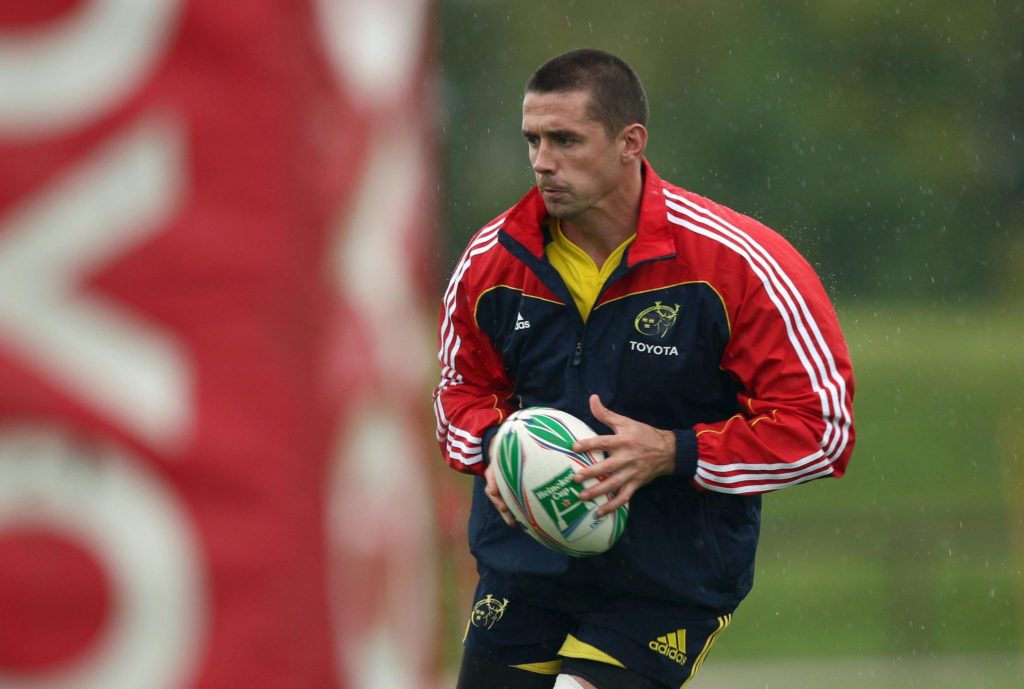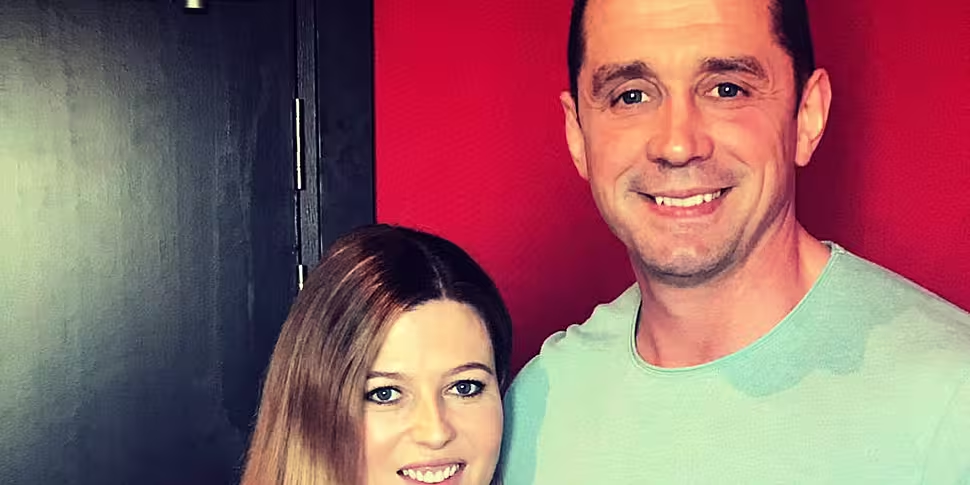Ten years after Alan Quinlan missed the 2009 Rugby Lions Tour because of a 12 week suspension, the former Munster and Ireland international player says it still feels like a life sentence.
Speaking to Newstalk Breakfast with Susan Keogh, he spoke openly about that suspension and the impact of it on his mental health.
He explained how mental health was a “hush-hush subject” when he was growing up, and people were cast aside or viewed as different if they had a mental health issue.
He stressed: “Thankfully in the last 10 to 12 years… that stigma is gradually being broken down, and there’s more compassion and empathy around trying to help people.”
Alan said that he had a wonderful childhood, and he was a very “happy go lucky” child.
However, looking back he believes there was always an “underlying sense of anxiety”.
He told Susan: “Sometimes I would have created more anxiety for myself by maybe lacking control in my mind… worrying about things, analysing, catastrophising.”
Nonetheless, he went on to find a job he loved and he excelled in sport.
For Alan, there’s sometimes a misunderstanding when it comes to those who believe that someone who has a mental health problem can’t a leader or be successful.
Despite his own success, however, he continued to experience his own issues that he couldn’t understand - a situation that “created a frustration and an anger in me”.
He noted: “I was probably someone who was always able to speak publicly - it was a strange kind of confidence that I would have had, to stand up in class, or be captain of my team… to speak and try to inspire other people.
“But I couldn’t inspire myself, because I didn’t see my own value.”
"Elation quickly turned to devastation"
 Alan Quinlan in 2009. ©INPHO/Billy Stickland
Alan Quinlan in 2009. ©INPHO/Billy SticklandQuinlan says he "hit a brick wall" after the suspension, and now a decade on it’s still something he finds hard to deal with.
He recalled: “The heights of elation quickly turned to devastation… that had a real profound effect on me."
Remembering that time, Alan said: "Missing out on the Lions Tour had a profound effect on me, that was my my end of the world moment...
"I couldn’t sleep, I had no motivation for anything and I felt guilty and ashamed, I felt everywhere I went people were looking at me.
“I didn’t see a way out and I was suicidal, I was getting into the danger zone of wanting to act on it.
“Most of my life, I had that mentality of be tough, be hard, don’t show any weakness, don’t show any emotional vulnerability… now I was emotionally broken after this.”
Alan said it was his son - who was born that same year - that helped get him through.
He explained: “Thankfully my son, who’s ten now, was only a few months old at the time... I’d head off in the buggy with him and go walking around Limerick, keeping my head down and hiding.
“He was my light, my hope that I had to get strong… and his mum as well. They were incredibly supportive - and they were the ones who had to live with me.”
“It probably tested my faith too as I would end up going into the Church to light candles… things like that.
He added: “To be fair, there were wonderful people who offered help and support. I kinda did what I always had done - I said ‘thanks’, but pushed it away. ‘I’m fine’. But I wasn’t: internally, I was kind of broken.”
Path to recovery
Alan eventually saw his rugby doctor, who immediately recognised there was a “certain amount of trauma” present.
Alan recalled: “He showed a brilliant empathy and compassion… I felt straightaway that there’s a path here to recovery.”
Speaking about Ireland’s current mental health services, Alan said there’s many things to praise - but more work and resources are still needed.
He suggested: “More services are needed particularly at weekends when people present to hospitals
“There’s a lot of wonderful nurses, doctors, volunteers within the HSE who do as much as they can. We need more.
“Hopefully we can change the culture and the picture… that we can get more people who are tuned into the fact that it is not a sign of weakness, it’s a sign of strength if you open up.”
"No quick fix"
Alan believes that “creating an openness” about your feelings and vulnerability is a proactive way of dealing with mental health issues.
He explained that his own path to recovery from anxiety and depression has taken a while but he is currently in a good place.
He observed: “There’s no quick fix - I still have waves of anxiety and negativity that I have to control. That’s an ongoing process”.
Alan concluded by saying that while the modern world can be an extremely challenging place, it’s vital that we keep trying to change things for the better.
He explained: “The world is a very pressurised place nowadays, it’s a very judgmental world, it’s a very macho world at times.
"But I’m really inspired by the people of Ireland - the schools, the workforce, employers, sporting organisations - who are sending out positive messages.
“I’m inspired by the change in trying to break down the stigma. But we must educate people, and we must educate our children about the importance of resilience and the importance of being open.”
Anyone looking for support can contact Samaritans for free any time from any phone on 116 123.
They can also text 087 260 9090, email jo@samaritans.ie or visit www.samaritans.ie.









